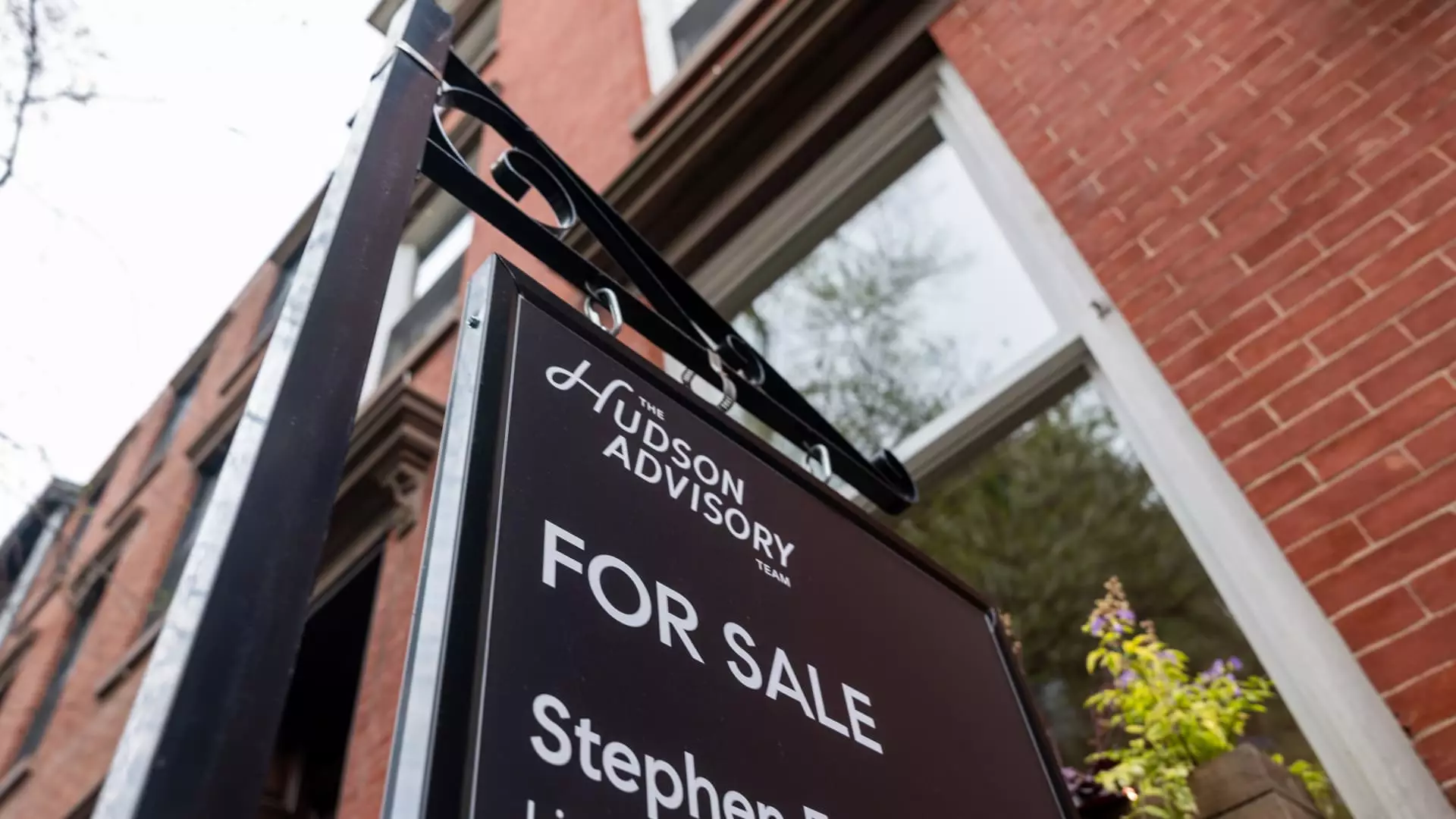In the tumultuous financial landscape we’re currently navigating, the recent spike in mortgage rates is nothing short of alarming. As of last Friday, the average rate on a 30-year fixed mortgage surged to an unprecedented 7.1%, marking the highest figure since mid-February. This shift is alarming for more than just its numbers—it’s indicative of a much larger issue in our economy that has been compounded by tumultuous political actions and global events.
The volatility in mortgage rates can be traced back to the market’s reaction to President Trump’s recent tariffs. Initially, his reckless imposition of tariffs on multiple countries sent bond yields spiraling; when he quickly walked back on these rates for many countries, yields fluctuated yet again. This reaction highlights a troubling problem: the housing market’s sensitivity not just to domestic economic policies but also to unpredictable international episodes. Amidst this chaos, Chinese imports remain heavily taxed at 145%, which symbolizes a strain in international trade relations that may have lasting effects on the economy.
The Fear Factor: Consumer Sentiment and Housing
Adding to the economic instability, consumer sentiment reports unveiled stark declines, with inflation expectations jumping significantly. From a 5% forecast in March to a staggering 6.7% in April, it’s evident that many Americans are feeling the pinch. This sentiment isn’t just linked to everyday expenses; it strikes at the heart of home ownership, which is, for most, their single most substantial investment.
Nancy Lazar, chief global economist at Piper Sandler, pointed out that given the surge in mortgage rates and the unstable job market, consumers are increasingly hesitant to invest in housing. Her assertion that it might be prudent to “forget about housing in this environment” rings true. It underscores a frightening reality where many potential homebuyers may now view homeownership as an unattainable dream rather than a solid investment opportunity.
The Long-Term Effects on the Housing Market
What does this mean for the future of the housing market? First, we have to accept that prolonged uncertainty is likely fallout from the current spike in rates. A sky-high interest rate discourages new home purchases and could force existing homeowners to reconsider selling, as higher rates could mean diminished purchasing power for prospective buyers. The inevitable result could be stagnation in the housing market, affecting not only buyers but also sellers and the broader economic ecosystem that surrounds them.
Moreover, if these rates persist, we could be entering a phase reminiscent of the mortgage crisis, where qualified buyers became scarce due to affordability issues. It is worth noting that historical patterns suggest that when mortgage rates spike, housing price growth typically stalls or even experiences contraction. This phenomenon could further exacerbate the financial hardships faced by many families.
A Call to Re-evaluate Economic Policies
In this climate of uncertainty and confusion, it would be wise for policymakers to focus on more stable, long-term economic strategies rather than short-term fixes characterized by unpredictable tariffs and reactive measures. A stable economic environment is essential for restoring confidence in the housing market. It’s vital that we prioritize conditions that foster long-term growth rather than succumbing to knee-jerk reactions that could jeopardize our economic foundation. The current trajectory we’re on suggests that we must be vigilant and proactive to prevent long-lasting damage to one of the country’s most critical sectors.

